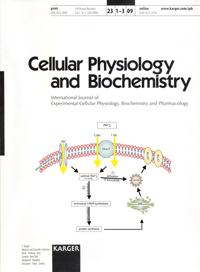
“Lung cancer is the major cause of cancer-related mortality worldwide.
Many of these over-express epidermal growth factor receptor (EGFR), and are usually highly aggressive and resistant to chemotherapy.
Recent studies have shown that Δ-9 Tetrahydrocannabinol (THC), the major component of Cannabis sativa, possess anti-tumor properties against various types of cancers.
However, not much is known about its effect on lung cancer. In this study, we sought to characterize the effect of THC on EGF-induced growth and metastasis of human non small lung cancer cell (NSCLC) lines A549 and SW-1573.
We demonstrate that these cell lines and primary tumor samples derived from lung cancer patients express cannabinoids receptors CB1 and CB2, the known targets for THC action.
We further show that THC inhibits EGF-induced growth in these cell lines.
In addition THC attenuated EGF-stimulated chemotaxis and chemoinvasion.
Next we characterized the effect of THC on in vivo lung cancer growth and metastasis in a murine model. A549 cells were implanted in SCID mice (n=6 per group) through subcutaneous and intravenous injections to generate subcutaneous and lung metastatic cancer, respectively. THC (5mg/kg body wt.) was administered once daily through intraperitoneal injections for 21 days. The mice were analyzed for tumor growth and lung metastasis.
A significant reduction (~50%) in tumor weight and volume were observed in THC treated animals compared to the vehicle treated animals.
THC treated animals also showed a significant (~60%) reduction in macroscopic lesions on the lung surface in comparison to vehicle treated control.
Immunohistochemical analysis of the tumor samples from THC treated animals revealed anti-proliferative and anti-angiogenic effects of THC with significant reduction in staining for Ki67, a proliferative marker and CD31, an endothelial marker indicative of vascularization. Investigation into the signaling events associated with reduced EGF-induced functional effects revealed that THC also inhibits EGF-induced Akt phosphorylation. Akt is a central signaling molecule of EGFR-mediated signaling pathways and it regulates a diverse array of cellular functions, including proliferation, angiogenesis, invasion and apoptosis.
Cumulatively, these studies indicate that THC has anti-tumorigenic and anti-metastatic effects against lung cancer. Novel therapies against EGFR overexpressing, aggressive and chemotherapy resistant lung cancers may include targeting the cannabinoids receptors.”
http://cancerres.aacrjournals.org/content/67/9_Supplement/4749.short
http://www.thctotalhealthcare.com/category/lung-cancer/
 “α-Pinene represents a member of the monoterpene class and is highly distributed in higher plants like conifers, Juniper ssp. and Cannabis ssp.
“α-Pinene represents a member of the monoterpene class and is highly distributed in higher plants like conifers, Juniper ssp. and Cannabis ssp. 

 “Our laboratory is interested in searching for a new plant-based therapeutics to treat ovarian cancer.
“Our laboratory is interested in searching for a new plant-based therapeutics to treat ovarian cancer.


 -9 Tetrahydrocannabinol (THC),the major component of Cannabis sativa, possess anti-tumor propertiesagainst various types of cancers.
-9 Tetrahydrocannabinol (THC),the major component of Cannabis sativa, possess anti-tumor propertiesagainst various types of cancers.